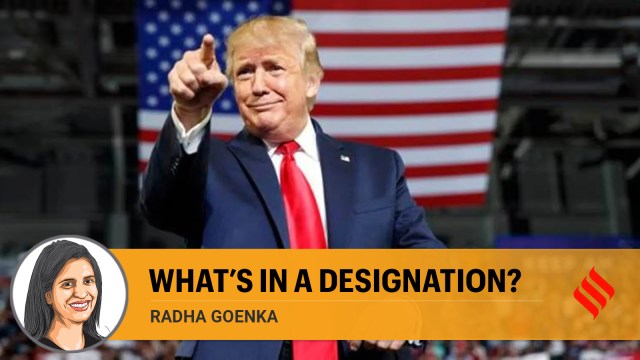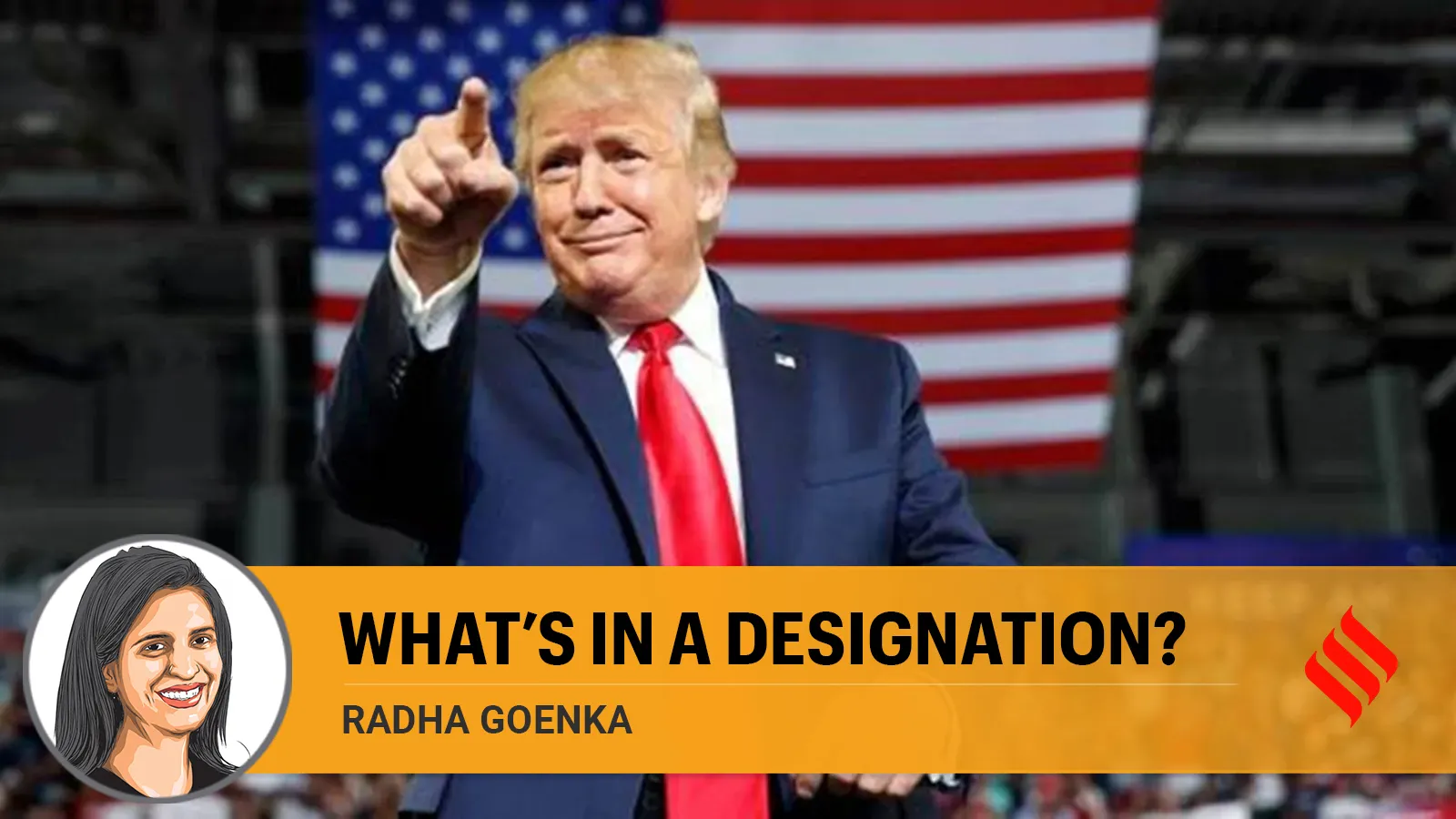

Dec 13, 2024 12:00 IST First published on: Dec 13, 2024 at 07:20 IST
As the world scrambles to accept Donald Trump as the new President of the United States, let’s take a closer look at what Trump 2.0 means. In his internal role as President, he makes decisions that concern the people of the United States. Any major decisions about domestic policy and governance must be cleared by the House of Representatives and the Senate. That’s not easy. The US democratic system is very robust, and some guardrails protect the country from one leader’s bad decisions. But in his external role as a global leader, there are fewer checks.
His title as the president of the richest and most powerful economy holds significant weight; he represents the US in global settings. A casual meeting with Vladimir Putin could signal support for Russia over Ukraine. An impulsive tweet on tariffs could affect the share prices of global companies. His role as president is more inward, in the laws he can pass for the country, and his title is outward, in what he represents as President, where there is a higher potential for uncertainty for the world.
Similarly, in the business world, titles serve to profile the external image of the organisation. Large consulting firms like McKinsey use titles like “partner” and “consultant” abundantly in their organisation. McKinsey has approximately 2,000 partners and 30,000 consultants globally. The primary clients for consulting firms are large corporations that typically use traditional titles. Usually, titles like “CEO” and “COO” are used and are given to fewer members in the C Suite of the organisation. When a client is approached by a “partner” or “consultant”, what the employee’s actual role is mystified and often gives the perception of seniority, which serves McKinsey well. Titles are used cleverly to McKinsey’s benefit; you wouldn’t have expected anything less from strategists.
Paradoxically, the messaging that titles provide to the external world also helps attract better talent. In the world of social media, young people increasingly want titles that help profile them; it serves their ego. Google, part of Alphabet Inc., is known for its relatively flat organisational structure, which minimises traditional management layers. Employees are often structured into small cross-functional teams and referred to as “squad” or “Googlers”. These titles connect well with young professionals. Ola uses the title “digital marketing ninja” instead of “digital marketing manager”. These titles are more sought after than traditional ones and become part of the organisation’s appeal to employees.
Yet, how does one recruit in a world like this where titles are not standardised? What recruiters look at is not the titles but an individual’s role and years of experience. One of the primary purposes of an interview is to demystify your resume and understand what you really do — details about the work you do in a particular role. People want to hire people who have performed well in their roles, collaborated with their peers and delivered results. The title they hold is rarely paid any attention to. Eventually, it becomes irrelevant.
most read
The titles we carry in our personal lives, beyond the world of business and politics, are deep-rooted and hardest to decipher. Young people today are questioning the “marriage” title. The title of marriage helps when you have kids, it helps the child feel like he or she is part of a unit. It simplifies logistics like school admissions, insurance and inheritance. It also helps if you are a financially dependent spouse, it provides a safety net. But those who are adopting the DINK lifestyle (double income no kids) are asking: If I am playing the role of being your partner, why do I need the title of being a husband or wife? They believe the title weighs down a relationship with unnecessary expectations and prefer not to deal with the hassles of the legal system. To the dismay of traditionalists, marriage is just a title for them that doesn’t hold any value. “What’s in a name anyway?” they say.
As we navigate an uncertain world where traditional titles are increasingly questioned, we must look beyond titles and reflect on what truly matters: The true essence of our roles and contributions in our relationships and careers.
The writer is Director at RPG Foundation
Why should you buy our Subscription?
You want to be the smartest in the room.
You want access to our award-winning journalism.
You don’t want to be misled and misinformed.
Choose your subscription package


